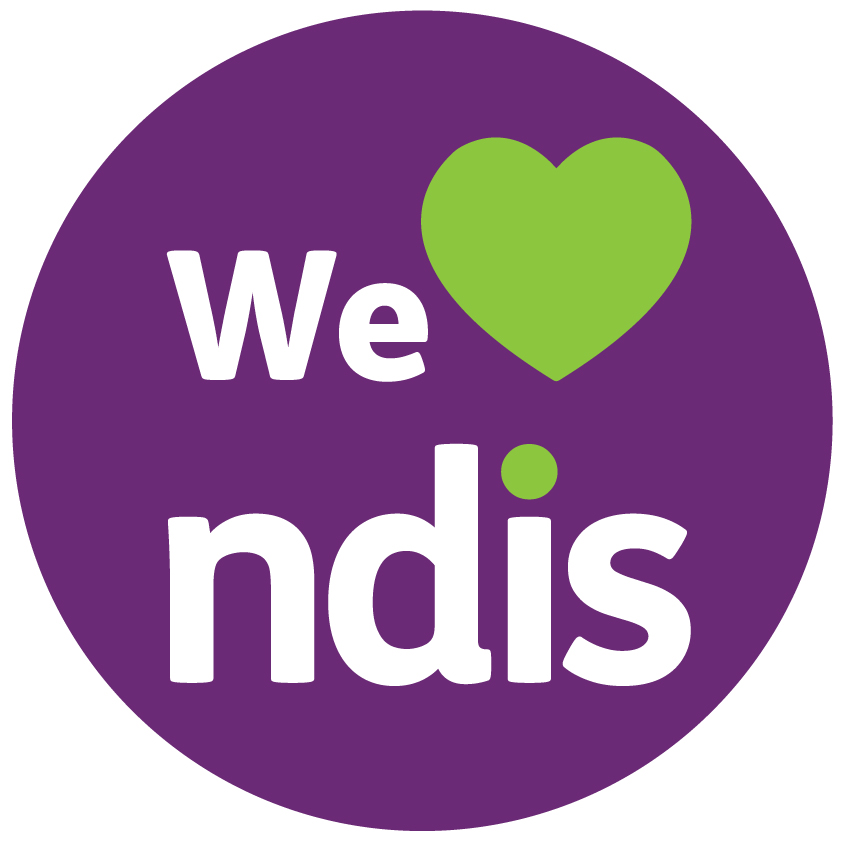Assistive technology is an essential means by which individuals with disabilities can perform functions that might otherwise be difficult or impossible. Some examples include mobility aids, iPads, and physical modifications within the home, such as ramps and grab bars.
|
|
|
|
|
|
|
|
NDIS Australia set out guidelines and categorisations for the product risk. They are placed in a high, mid and low category of risk. A powered wheelchair, for example, is placed in the high-risk category as it is recognised as complex assistive technology.
|
|
If individuals fit the plan criteria, assistive technology is worthwhile when putting together an NDIS plan. The NDIS is committed to building a sustainable and empowering approach to assistive technology in the NDIS community.
|
|
|
|
Our therapists at Connect2Care strive to enrich all participants’ lives and provide the most appropriate assistive technology to improve independence and quality of life.
NDIS Assistive Technology | Connect2Care
|
|
|
|
|
|
Ongoing pain can be extremely difficult to deal with, not only physically, but also mentally. Dealing with chronic pain as early as possible is imparative.
What is Chronic Pain?
It is a common belief that our tissue heals after an injury, and pain usually goes away. Yet, many Australians experience pain after the healing process is complete. When pain lingers for more than three months, it falls into the category of “Chronic Pain.”
Chronic Pain Explained:
A common explanation is that chronic pain occurs due to the changes in our nervous system; the pain receptors become more sensitised and keep the nerves firing, signalling pain to the brain.
Factors:
Factors contributing to chronic pain include stress, anxiety; sleep; diet; and psychological trauma. When dealing with chronic pain, taking a holistic approach to care is essential. How can we achieve this? Practising mindfulness, speaking to a psychologist or developing a regular sleep routine and a healthy diet can promote our physical and mental health.
|
|
|
|
How to Deal with Chronic Pain
Managing chronic pain effectively involves more than just medical treatments; it requires an integrated approach that encompasses various aspects of your lifestyle and wellbeing.
Here are some practical tips that can help in dealing with chronic pain:
- Develop a Multidisciplinary Care Plan: Engage with healthcare professionals like physiotherapists, exercise physiologists, and psychologists to create a comprehensive care plan. This ensures that all aspects of your chronic pain are addressed.
- Stay Active: Gentle exercise can be surprisingly effective in managing pain. Activities like walking, swimming, or tailored exercise programs can help maintain mobility and reduce pain intensity.
- Mindfulness and Relaxation Techniques: Practices such as meditation, deep breathing exercises, and yoga can help manage the psychological aspects of chronic pain. These techniques help to reduce stress and can alter the perception of pain.
- Healthy Diet: A balanced diet can aid in overall health and can sometimes reduce inflammation, which might contribute to chronic pain. Include plenty of fruits, vegetables, and whole grains in your diet.
- Quality Sleep: Poor sleep can exacerbate pain. Establishing a regular sleep routine and creating a restful sleeping environment can improve sleep quality.
- Stay Hydrated: Dehydration can worsen the symptoms of chronic pain. Ensure you’re drinking enough water throughout the day.
- Join Support Groups: Sharing experiences and tips with others who understand what you’re going through can be very helpful. Support groups provide emotional support and practical advice on living with chronic pain.
By incorporating these strategies into your daily life, you can start dealing with chronic pain and gain more control over your chronic pain, leading to an improved quality of life.
|
Connect with Connect2Care
At Connect2Care, your health and well-being are our highest priorities. We match you with healthcare professionals who understand the intricacies of chronic pain and are committed to providing empathetic, effective care. Together, we work towards managing your pain and enhancing your overall health. Connect with us today – because your journey to better health and pain relief starts with a simple step.
|
|
|
|
|
|
|
Joanne’s message:
“No matter how you choose to approach chronic pain, it is always important to remember that any movement is better than no movement at all.”
Make the move now!
|
|
“Not only does language development support the child’s ability to communicate, but also their ability to express their feelings, problem-solving skills and developing and maintaining relationships.”
Jenny Ngo – Speech Pathologist at Connect2Care
Repeat, Sit Down & Read
Help stimulate and develop your child’s language.
|
|
Language is vital to a child’s development. It complements a range of other developments, such as cognitive, social, and literacy.
For instance, children with language delays benefit from repeating words they hear multiple times daily in different situations. An example is using the term “up” when picking up your child while in their cot and when going upstairs.
Give your child more opportunities to learn that word. Sit down and share a book with your child as it is proven to help increase a child’s language and reading development. Studies have shown that having books in the home and reading regular bedtime stories can improve a child’s vocabulary and help increase comprehension.
NDIS Early Support Services & Pediatric Therapy | Connect2Care
Dickinson, D., Griffith, J., Golinkoff, R., & Hirsh-Pasek, K. (2012). How Reading Books Fosters Language Development around the World. Child Development Research, 2012, 1-15.DOI: 10.1155/2012/602807 Hagen, A. (2017). Improving the Odds: Identifying Language Activities that Support the Language Development of Preschoolers with Poorer Vocabulary Skills. Scandinavian Journal Of Educational Research, 62(5),649-663. DOI: 10.1080/00313831.2016.1258727
|
|
A traumatic brain injury (TBI) is an injury to the brain caused by an external force. TBI is a form of Acquired Brain Injury (ABI). Car accidents in Victoria make up a large percentage of TBI injuries. No person with a TBI/ABI is the same. It affects people in different ways. In addition to it majorly impacting the individual, it also affects those around them (i.e., family members).
Unfortunately, there is no “cure” for ABI/TBI. But there is hope. This person now has to form new neural pathways. Psychology works to assist those suffering from TBI through learning coping skills and improving general emotional well-being. Moreover, evidence indicates that behavioural therapy, CBT and psychoeducation can help improve brain function and symptom relief.
As an OT working in the NDIS space with clients with mental health and psychosocial issues, we have many opportunities to make meaningful and lasting contributions to peoples’ lives and journeys.
One such story was a client I recently worked with who did not have suitable permanent accommodation due to her complex behaviours.
As such, she was facing imminent homelessness. As her OT, I worked with her medical and therapy team to assess, report and advocate for a permanent housing solution that would meet her complex behavioural issues and long term needs.
What justified inclusion into community programs, access to social groups and assistance with personal and instrumental activities to ensure she could lead a meaningful and satisfying future.
Early Intervention (EI) Therapy is a passion of mine. The NDIS currently supports young children from zero to seven years with an Early Childhood Intervention Services ECIS model without needing a formal diagnosis.
As explained further in an American Occupational Therapy Association article by Ashely Opp: A child’s earliest years are filled with new stimulations and novel experiences that drive their cognitive, social, and physical growth. The first three years of life are a critical time for brain development, significantly if a child is delayed or restricted in development. If a child needs support to develop optimally, occupational therapy can help.
Furthermore, occupational therapy aims to assist children with developmental delays or a known physical or mental condition associated with a high probability of delays by improving their motor, cognitive, sensory processing, communication, and play skills.
AOTA advocacy: schools and early intervention | AOTA
NDIS Early Support Services & Pediatric Therapy | Connect2Care
NDIS Occupational Therapy | Occupational Therapists | Connect2Care
At university, Physiotherapy students are taught about the many different areas that you can work in as a Physiotherapist – Musculoskeletal (muscles and bones); Neurological (brain/nervous system), and Cardiorespiratory (heart and lungs); Paediatrics; and Women’s Health, to name a few.
During my ten years working as a Physiotherapist, I have gained experience working in many of these different fields in both the public and the private sectors, each area providing a different set of challenges, growth and reward. It wasn’t until I started working at Connect2Care, specifically with NDIS clients, that I realised that I combine all of the skills that I have learnt in all of the different fields of Physiotherapy almost daily. You don’t necessarily have to have one area of interest or expertise. Every client is unique, and you need to draw on all of the knowledge you have in these different areas to assist them in achieving their goals.
People often think that Physiotherapists give exercises to help with an injured back or a sore knee, but they can do SO much more! I love the feeling of assisting clients to be able to do what they enjoy; it is the most rewarding “job” I have ever had.






